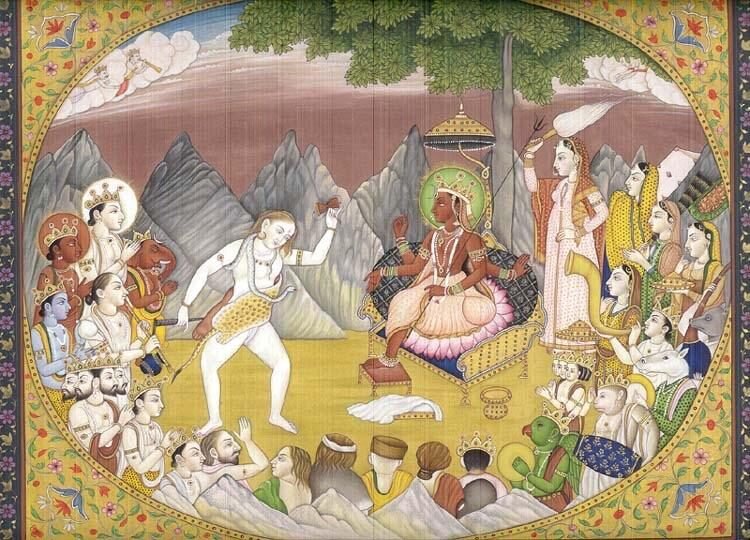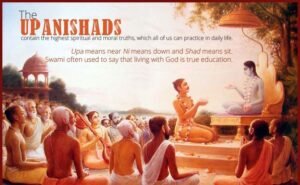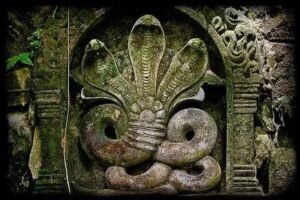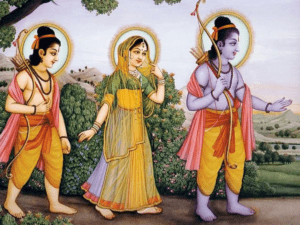Schools of Thought in Hinduism : Exploring the Key Concepts
Schools of Thought in Hinduism

Philosophy occupies a central place in Hinduism, offering profound insights into the nature of reality, the self, and the universe. Hindu philosophy is not monolithic; it comprises a variety of schools of thought that have evolved over millennia. These schools, known as Darshanas, provide different perspectives on fundamental questions of existence, ethics, and spirituality.
This article explores the key concepts and schools of Hindu philosophy, highlighting their significance and relevance in both ancient and modern contexts.
Orthodox Schools of Hindu Philosophy
- Nyaya: Logic and epistemology
- Vaisheshika: Atomism and the nature of reality
- Samkhya: Dualism between consciousness and matter
- Yoga: Discipline and the path to liberation
- Mimamsa: Rituals and the authority of the Vedas
- Vedanta: Non-dualism and the nature of Brahman
Hindu philosophy is traditionally divided into six Astika (orthodox) schools, which accept the authority of the Vedas. These schools offer diverse approaches to understanding the world and our place in it:
Nyaya
Nyaya is the school of logic and epistemology. It emphasizes the use of reason and debate to arrive at truth. The Nyaya system outlines a detailed methodology for acquiring knowledge, including perception, inference, comparison, and testimony. Nyaya philosophy plays a crucial role in shaping Hindu logical thought and discourse.
Vaisheshika
The Vaisheshika school focuses on metaphysics, particularly the nature of reality and the composition of the universe. It posits that the world is made up of atoms (paramanu), which combine to form all matter. Vaisheshika also explores the categories of existence, including substance, quality, and action.
Samkhya
Samkhya is one of the oldest schools of Hindu philosophy, known for its dualistic view of reality. It distinguishes between Purusha (consciousness) and Prakriti (matter). According to Samkhya, the interaction between Purusha and Prakriti gives rise to the material world. Liberation (Moksha) is achieved by realizing the distinction between these two principles.
Yoga
Closely related to Samkhya, the Yoga school focuses on the practical aspects of spiritual discipline. Patanjali’s Yoga Sutras outline the Ashtanga (eight-limbed) path, which includes ethical conduct, physical postures, breath control, and meditation, all aimed at achieving liberation.
Mimamsa
Mimamsa, also known as Purva Mimamsa, emphasizes the importance of ritual and the authority of the Vedas. This school asserts that performing Vedic rituals is essential for maintaining cosmic order and achieving desired outcomes in life. Mimamsa philosophy upholds the eternal nature of the Vedas and their role in guiding moral and religious conduct.
Vedanta
Vedanta, or Uttara Mimamsa, is perhaps the most widely known and influential school of Hindu philosophy. It focuses on the nature of Brahman (the ultimate reality) and the relationship between the individual soul (Atman) and Brahman. Advaita Vedanta, propounded by Adi Shankaracharya, teaches the non-dualistic view that Atman and Brahman are ultimately identical, and that liberation is achieved through the realization of this unity.
Non-Orthodox Schools of Thought (Nastika)
In addition to the six orthodox schools, Hindu philosophy also encompasses several non-orthodox (Nastika) schools that reject the authority of the Vedas:
- Charvaka: Materialism and skepticism
- Jainism and Buddhism: Shared roots with Hinduism but distinct philosophies
Charvaka
Charvaka is a materialistic and skeptical school of thought that denies the existence of an afterlife, karma, and Moksha. It advocates for a hedonistic approach to life, emphasizing sensory experience and pleasure as the highest goals. Although Charvaka philosophy is no longer widely practiced, it represents a critical perspective within the broader Hindu philosophical landscape.
Jainism and Buddhism
While Jainism and Buddhism are distinct religions, they share roots with Hinduism and have influenced Hindu philosophy. Both reject the authority of the Vedas and propose alternative paths to liberation. Jainism emphasizes non-violence (ahimsa) and the strict adherence to ethical principles, while Buddhism focuses on the cessation of suffering through the Noble Eightfold Path and the realization of Nirvana.
Key Concepts in Hindu Philosophy
Several key concepts are central to understanding Hindu philosophy, regardless of the specific school:
- Atman and Brahman: The individual soul and the ultimate reality
- Maya and Lila: Illusion and the play of the divine
- Karma and Reincarnation: Ethical consequences and the cycle of life
Atman and Brahman
Atman refers to the individual soul or self, while Brahman is the ultimate reality that pervades the universe. The relationship between Atman and Brahman is a central theme in Hindu philosophy, particularly in Vedanta, where the realization of their unity is considered the path to liberation.
Maya and Lila
Maya is the concept of illusion or the apparent reality that conceals the true nature of the universe. Lila, meaning “divine play,” refers to the idea that the universe is a manifestation of the divine’s creative expression. These concepts highlight the complexity of reality and the challenge of perceiving it accurately.
Karma and Reincarnation
The law of Karma, which governs the moral consequences of actions, is a fundamental concept in Hindu philosophy. It is closely linked to the idea of Samsara, the cycle of birth, death, and rebirth. According to Hindu belief, one’s actions in this life determine the circumstances of future lives, and liberation from this cycle is achieved through spiritual realization.
Hindu philosophy is a rich and diverse tradition that has profoundly influenced not only religious thought but also global philosophical discourse. The concepts and schools of thought within Hinduism and hindu philosophy offer valuable insights into the nature of existence, ethics, and spirituality. As contemporary society continues to grapple with questions of meaning and purpose, the wisdom of Hindu philosophy remains as relevant today as it was thousands of years ago.






